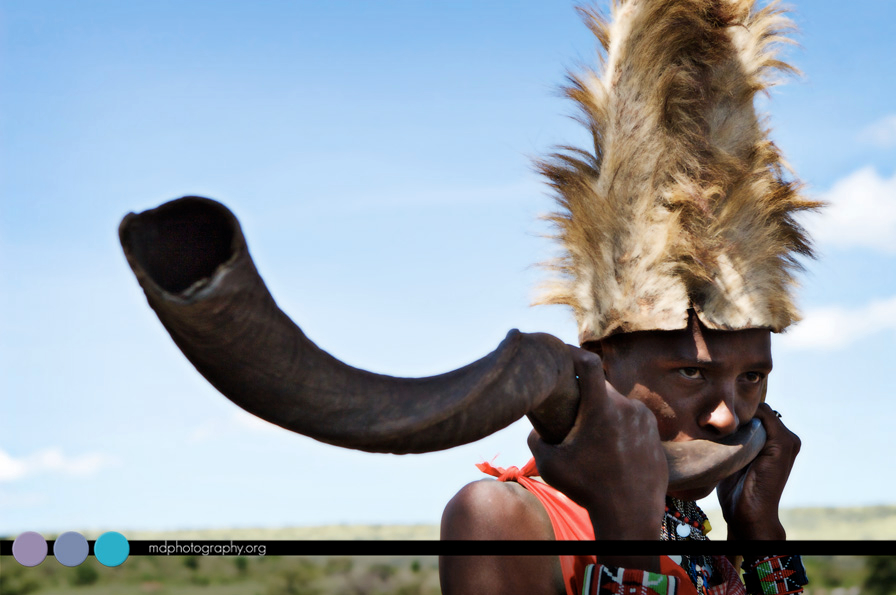Demography
In july 2014 Kenya's population was 45.010.056. The population reduces by the AIDS epidemic, but the population is still growing since the birth rate is still higher than the death rate.
The language
The country has more than 40 different ethnic groups. The largest group is the Kikuyu (22% of the population). Other groups are Luhya (14%), Luo (13%), Kalenjin (12%), Kamba, Kisii and Meru. They all speak a variety of mother tongues. The different languages in Kenya fall into three categories – Bantu (Niger-Congo) which is spoken by around 65% of people, the Nilotic near Lake Victoria spoken among another third of the population and the Cushitic language, spoken in the north by around 3% of the population.
The most widely spoken language is Swahili. Swahili is used as the national language of Kenya. However English is used by government and businesses. It is also used in most of the schools. English is the official language, but solely spoken by people with a certain level of education.
Ethnic Relations
The nation's politics tend to be dominated by the Kikuyu, the largest tribe. Over the centuries they have gained their domination peaceful and it involved a mingling of ethnics groups. The bad relations among various ethnic groups have been a major obstacle in creating a united country. When the British colonized the country they played one group against the other to reinforce their own power. Ethnic tensions are still a big matter in Kenya.
Etiquette
Kenyans are friendly and greetings are an important social interaction. Health and family matters are discussed. When visiting a home it is considered impolite to decline the tea or food that is offered to you. Elderly are treated with a lot of respect.
Celebrations
New Year's Day on 1 January, Labor day on 1 May, Madaraka Day anniversary on self-rule on 1 June, Moi Day -the president's installation in office - on 10 October, Jamhuri Day - independance day - on 12 December. Kenyatta Day - celebrating Jomo Kenyatta as the national hero - on 20 October.
Family and Marriage
Kenyans are polygamous. When a man chooses his wife, he pays a bride price. Since more Christians occurred in the population, the people started to be more often monogamous. The man needs to build a separate hut for each of his wives and according to the tradition the youngest son needs to take care of his aging parents. The women almost never inherit any property, this is also a legal matter.
Women
Women earn less money than men in Kenya. They are mostly treated as second-class citizens. In agricultural communities the women do up to 80 percent of the work. They also take care of the children, cook and sell the vegetables on the market. Wife beating is common. And then there is genital mutilation, which can kill them or keep them in continual pain. Their status in society increases when they get education.
Literature
The Kenyan often pas stories on from generation to generation. The subject is often animals or spirits, also war stories are popular, detailing soldiers' bravery. Censorship is a problem in Kenya. Ngugi wa Thiong'o, Kenya's most prominent writer, has spent already a year in jail, after he started to publish his books in Swahili. His books were strong messages of protest.
Food
Corn is mostly eaten by Kenyans. It is made into porridge, which is sometimes mixed with beans, potatoes and vegetables. Another popular dish is beef stew. But meet is expensive and rarely eaten. Luckily the people like beer as well, which is often produced in the local Kenyan Breweries.
Music
Native African culture has been diluted in many parts of Kenya by outside influences. So for example, Kenya’s music is often a mixture of African, Indian, European and American styles. One of the most popular forms of pop music is Benga, which combines traditional African drum and dance rhythms with modern electrical sounds and melodies.
Clothing
Many Kenyan communities have been influenced by western or Islamic forms of dress. They combine it with their original tribal clothing. Clothing always cover most of the women s' bodies
Religion
Across Kenya two-third of people are Christian. With the centuries-old influence of Arabic and Islamic traders and settlers (particularly along the coast), around 15% of Kenyans are Muslim. Although mainstream religions such as Christianity and Islam are widespread, many followers of these faiths still believe strongly in the ancestor world, where the dead have powers for good or bad over their living descendants. Belief systems among some remote tribes also remain indigenous.
sources: www.our-africa.org and www.everyculture.com
